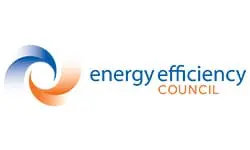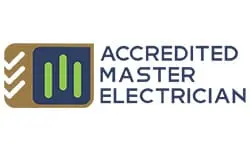
GET EV CHARGERS FEASIBILITY REPORT
ENQUIRE NOWThe Difference Between DC and AC Chargers
The difference between DC (Direct Current) and AC (Alternating Current) charging lies in how the electricity is delivered to the electric vehicle (EV) and how it is converted for use in the vehicle’s battery. Here is a breakdown:

| Feature | AC Charging | DC Charging |
|---|---|---|
| Electricity Type | Alternating Current (AC) | Direct Current (DC) |
| Conversion Process | Converted from AC to DC by the vehicle’s onboard charger | Directly supplies DC to the vehicle’s battery |
| Where to Install | Home, workplace, slower public chargers | Public fast-charging stations |
| Typical Power Output | Level 1 (1-3 kW), Level 2 (7-22 kW) | DC fast chargers (60 kW to 600 kW) |
In summary, AC charging is ideal for slower, long-duration charging, such as at home or at work while DC charging is best for fast, on-the-go charging when time is limited, such as during long trips at public charging stations.
Return on Investment for EV Chargers
According to the Federal Chamber of Automotive Industries, electric vehicles, hybrids, and plug-in hybrids reached a combined total of 196,868 sales in Australia in 2023, representing a market share of 16.2%. With an expected compound annual growth rate (CAGR) of 17.05% from 2024 to 2028, the market is projected to reach a volume of AUD 9.25 billion by 2028.
Now is the ideal time to take advantage of this growth and generate revenue by offering charging services for electric vehicle users. Kuga Energy specialises in the design, engineering, construction, and software solutions for charge point operators, ensuring a seamless and efficient experience.
As a business or commercial property owner, installing a solar-powered EV charging station can significantly increase your revenue stream while also creating opportunities for your own business and those around you. When EV drivers choose to charge at your station, they often spend time exploring the area.
They might grab a meal, shop, or relax at nearby businesses while their vehicle charges, creating a ripple effect of foot traffic and potential sales for surrounding stores.
So, is it worth investing in a solar-powered EV charger for your property?
Absolutely.
With more drivers transitioning to electric vehicles for sustainability and other incentives, the demand for charging infrastructure is rising. By adapting to these emerging technologies, you not only support a cleaner future but also position your property as a valuable hub for EV drivers. Embrace the opportunity to profit while promoting a greener way of living.
Integrating an application to your EV Chargers can also help you maximize your revenue. From optimizing your business’s internal charging need to opening your chargers in public for extra revenue.
With Kuga, you can build charging infrastructure that is not only effective but scalable to meet future demands.
Commercial EV Charger Installations
EV Charger Installation at Primal Surfacing
Location Primal Surfacing
Solar Panels 310W JA Solar Mono Perc
Inverter Goodwe
Total Solar production 1264.11MWh
Primal surfacing has strong carbon reduction targets set by their parent company Colas group. This includes a number of Electric trucks to be rolled out across their fleet. As the next step in the process, they engaged KUGA to install a 99kW and 30kW solar system. The 99kW system was intentionally over-sized to allow for the install of 5x EV charging points which KUGA mounted in their staff and visitor carparks.
EV Charger Installation at Momentum Foods
Location Momentum Foods, Melbourne
EV Charger 20kW
PV System Size 60kW
Total Solar production 1264.11MWh
KUGA has worked with Momentum foods since the owner Shimon decided to bite the bullet and try solar to gain control of some of his variable overheads. One year later, the saving were so significant that he asked for another solar installation which had the capacity to charge his tesla during the day. KUGA installed the 20kW tesla charger along with the system, allowing Shimon to avoid the crazy fuel and electricity prices forever!
Capability Statement
Download our Capability Statement to read more on our company, our people, our capabilities and our projects.
DOWNLOAD NOW
Check Our Latest Videos
Explore our recent projects and Youtube channel to see how we carefully execute our installations to meet the unique business requirements of our customers. From large-scale solar roof installations to LED lighting upgrades and solar battery storage systems, there’s no project too big or small for our team
Contact Us
Get In Touch, We Love Talking Solar!
Fill out the form below to contact us!





Industry Partnerships














 Get Quote
Get Quote Call Now
Call Now